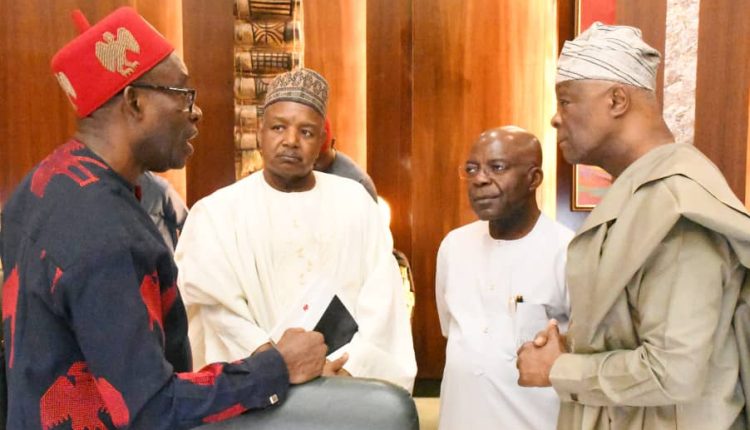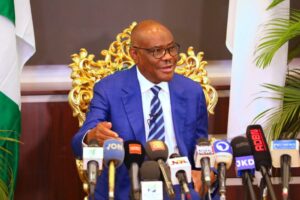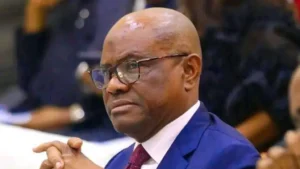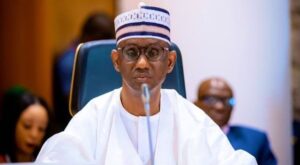The National Economic Council (NEC), chaired by Vice President Kashim Shettima, has taken a significant step to strengthen Nigeria’s fiscal management by approving a draft bill to update the Revenue Mobilization Allocation and Fiscal Commission (RMAFC) law. This decision was disclosed by Anambra State Governor, Professor Charles Soludo, during a media briefing after NEC’s final meeting for 2024.
The proposed changes to the RMAFC law aim to enhance the commission’s ability to manage the nation’s revenues more effectively, ensuring transparency and accountability in fiscal governance.
The NEC has endorsed a proposal to repeal the existing RMAFC law and replace it with a more robust framework. This updated law seeks to improve the commission’s operations and adapt it to the current economic realities.
The approved draft bill will now be forwarded to the National Assembly for further review and passage. This legislative renewal is expected to empower RMAFC to better fulfill its critical role in Nigeria’s economy.
The NEC also addressed the funding challenges faced by the RMAFC.
- The council agreed to allocate 0.05% of Nigeria’s non-oil revenue to support the commission’s activities.
- This amount is a reduction from the initial request of 0.75%, as recommended by RMAFC. However, the final decision will depend on the National Assembly’s approval.
Enhanced funding is seen as a necessary step to enable the commission to operate more effectively and meet its responsibilities.
The RMAFC is a vital institution responsible for overseeing revenue management in the country. Its key functions include:
Ensuring that revenues are collected and distributed fairly among federal, state, and local governments.
Overseeing the equitable sharing of funds among different levels of government.
Setting appropriate remuneration for political leaders and public officials in line with economic conditions.
Given its strategic role, the RMAFC needs adequate resources to perform its duties effectively. Weak funding has limited its capacity in the past, prompting the NEC to prioritize these reforms.
The RMAFC Chairman emphasized the need for these reforms, citing the commission’s pivotal role in ensuring fiscal stability and promoting good governance. The NEC acknowledged this necessity and acted to address the funding and operational gaps.
According to Governor Charles Soludo, the council’s decision reflects a broader commitment to strengthening institutions that are essential for Nigeria’s economic growth and stability.
The NEC’s endorsement of this draft bill signals a new era for the RMAFC. If passed by the National Assembly, the updated law will:
- Enhance transparency and accountability in revenue allocation.
- Provide the commission with the resources needed to address current challenges.
- Improve fiscal governance across all levels of government.
These reforms aim to ensure that Nigeria’s revenue management framework is robust, efficient, and adaptable to changing economic conditions.







